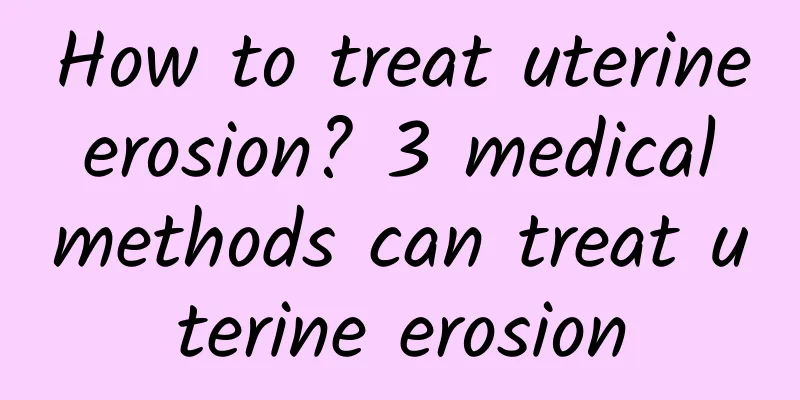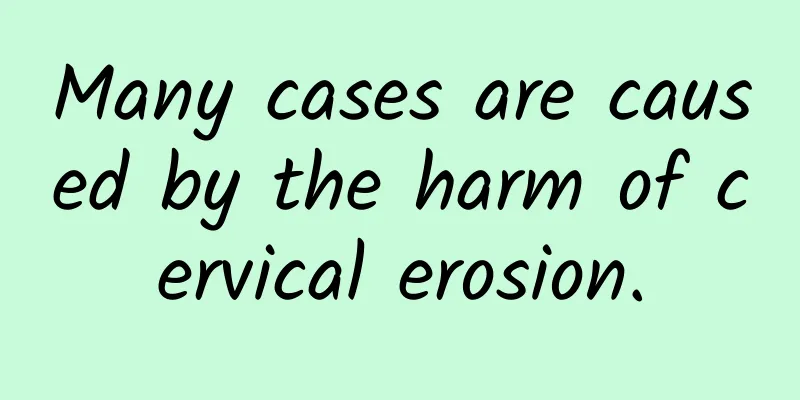What is the treatment for uterine fibroids?

|
What is the treatment for uterine fibroids? Many friends will ask these questions, but due to the influence of certain factors, such as high estrogen levels, the intervention of certain growth factors, etc., lumps and bumps can grow on the uterine wall, which are often called uterine fibroids. Let our experts briefly introduce the treatment of uterine fibroids to you! I hope it will be helpful to you! Uterine fibroids are the most common benign tumors of the female genitalia: Studies have found that about 20% of women aged 30 to 50 suffer from uterine fibroids, and the disease has been increasing in recent years. Although uterine fibroids are benign tumors and most symptoms are not obvious, if not discovered in time, they will endanger multiple organs of the body and may also cause infertility, so early prevention and early treatment are very necessary. Uterine fibroids can be clinically divided into the following three types according to their location: intramural fibroids located in the myometrium are the most common, accounting for 60% to 70% of the total; fibroids that grow toward the uterine serosa and protrude from the surface of the uterus are called subserosal fibroids, accounting for 20% to 30% of the total; fibroids that grow toward the mucosal layer and protrude into the uterine cavity are called submucosal fibroids, accounting for 10% to 15% of the total. Uterine fibroids vary greatly in size, from small ones that are invisible to the naked eye to large ones that can weigh tens of kilograms. The most common symptom of patients with uterine fibroids is menstrual changes: such as shortened menstrual cycles, prolonged menstrual periods or increased menstrual volume, especially heavy bleeding in a short period of time, which can cause severe anemia in patients. When fibroids grow larger, they can compress adjacent organs and cause frequent urination, constipation, hydroureter, hydronephrosis, etc. Fibroids generally do not cause pain, but if the pedicle of subserosal fibroids is twisted, it can cause acute abdominal pain; submucosal fibroids can stimulate uterine contractions and cause spasmodic pain, and when the fibroids are red and degenerated, it can cause severe pain. Uterine fibroids can also cause increased leucorrhea and infertility. Some people do not feel any discomfort, but are found to have uterine fibroids during a physical examination and B-ultrasound gynecological examination. So, what is the treatment for uterine fibroids? Uterine fibroids can be divided into surgical treatment and conservative treatment. Doctors usually formulate treatment plans based on comprehensive considerations such as the patient's age, fertility requirements, clinical symptoms, size and location of the fibroids. Surgical treatment can be considered in the following cases: Those with uterine enlargement greater than 3 months of pregnancy, or obvious compression symptoms, or excessive menstrual flow, resulting in secondary anemia, are all indications for surgery. Young infertile women with fibroids can be treated conservatively if they have no obvious symptoms and the size of the uterus is less than 3 months of pregnancy. For the diagnosis of uterine fibroids, the most reliable method is to use B-type ultrasound examination combined with gynecological internal examination, which is simple and painless. The above is a brief introduction of the treatment methods for uterine fibroids by experts. I believe you already know it. If you have any questions about uterine fibroids, please consult our online experts. We will serve you wholeheartedly! Uterine fibroids: http://www..com.cn/fuke/zgjl/ |
<<: Can ovarian cyst surgery treat its complications?
>>: How to treat conditions that cannot undergo ovarian cyst surgery?
Recommend
How to effectively prevent adnexitis?
Someone once said that healthy people are not awa...
Take good care of your vagina to prevent vaginitis
In daily life, we can prevent the occurrence of v...
Experts tell you the diagnosis of vulvar leukoplakia
Vulvar leukoplakia, also known as chronic vulvar ...
Adnexitis is caused by women not paying attention to menstrual hygiene.
Adnexitis is a disease that many women suffer fro...
Brief introduction to the various treatment methods for cervical hypertrophy
There are actually many treatments for cervical h...
What are the abnormal symptoms of menstruation before menopause?
Symptoms of abnormal menstruation before menopaus...
What are the dangers of uterine fibroids?
Uterine fibroids, known as the "first gyneco...
Treatment of chronic pelvic peritonitis with Chinese patent medicine
Although the symptoms of pelvic peritonitis are n...
Brief analysis of common symptoms of white lesions of the vulva
Vulvar leukoplakia is a common gynecological dise...
How is primary dysmenorrhea diagnosed?
What is primary dysmenorrhea? How is primary dysm...
Can right ovarian polycystic disease be cured?
Right ovarian polycystic disease is now common in...
Can I have sex if I have abnormal vaginal discharge? It is not recommended to have sex
Abnormal leucorrhea includes yellow foam, curd, a...
Mature women with diabetes have excessive waist circumference and difficulty controlling blood sugar
Is it okay if I have a normal weight? Be careful ...
What are the health guidelines after menopause?
Nowadays, menopause has become a very common gyne...
How to treat uterine fibroids? How to treat uterine fibroids?
How to treat uterine fibroids Uterine fibroids ar...









